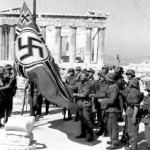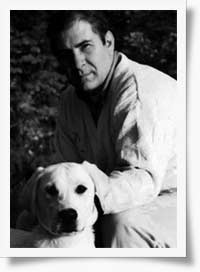 Summer is over and the kids are heading back to school. It makes me consider my own formal education.
Summer is over and the kids are heading back to school. It makes me consider my own formal education.
As I think about now, I come to the conclusion that I had a lot of instructors while I was in school, dedicated people who helped me learn things I soon forgot, but only two teachers in the true sense of the word, people who left a permanent mark on my life.
One of them was an old Philadelphia lawyer who had been seasoned by thirty years in the trenches before retiring to teach. He was near seventy, tough and demanding and unrelentingly honest.
The first day of class he asked each of us to explain why we wanted to be a lawyers. Not knowing what else to say, I told him the truth.
I told him I believed in justice. He told me I should reconsider. He said that if I was looking for justice, I wouldn’t find it there.
He was right, but that is another story.
The other, Dr. James Kousolas, taught philosophy at GW. The first class I had with him was an overview. In one semester we went from Socrates and Plato to Camus and Nietzsche.
It was a lot of material to cover in a short period of time and it left me completely confused. We were in the middle of the Vietnam War and I was half way between being eligible for the draft and being drafted. It was a time of doubt, distrust, and uncertainty. Everything was being questioned.
My friends and I debated the legitimacy of the war and wondered what we would do if called. The War gave the academic questions we studied in Kousolas’ class a sense of urgency and personal relevance – What is worth dying for? What do we live for? What is the measure of success? How do you lead a meaningful life in a time of turmoil?
Unable to find the answers I sought in the material we studied, I voiced my confusion and found the courage to ask Dr. Kousolas for his personal opinion.
You can imagine the reaction. Some members of my class laughed outright. Others were embarrassed by what they saw as an obvious effort to curry favor.
Dr. Kousolas must have had his doubts as well. He looked at me long and hard. After what seemed like forever, he stilled the class with a wave of his hand and perched on edge of his desk.
“I was sixteen with the Nazi’s came,” he said, pulling a wallet out of the breast pocket of his jacket.
“We lived in a remote village but I knew they would come for us soon. There were only two choices: You could either surrender or you could take your rifle, go up into the mountains, and make them come looking for you.
“So, my friends and I joined the resistance. One morning several months later we ambushed a German convey. As I surveyed the wreckage, I saw a broken mirror on the road. I sorted through it and picked up the largest piece as a souvenir.
With this, he and took a small piece of glass out of his wallet. It shimmered in the light as he held it up for us to see.
“The mirror was half again as big as what you see now,” he said. “It was jagged with irregular edges. Over time, I smoothed the edges my rubbing it against rocks and shaped it to look like this. For more than three years, I played with it in quiet moments, reflecting light into the dark places where we hid, illuminating cracks and crevices. It became something of a game.
“After the war I kept it because by then I understood it was more than a toy. It was a metaphor for my life. I came to understand that I am not the source of the light, but I know the light is there. I can see it and reflect it in what I say and do.
“So, to answer your question directly, here I am.”
He held the mirror up high and pointed it directly at me.
“Like this piece of glass, I am a fragment of a mirror whose design and shape I do not know. I know I cannot solve all the problems of the world. What I can do is bring light into darkness. I can reflect truth, love, and understanding into dark and doubtful places in the hearts of men and change some things in some people.
“That is why I am here. And that is why I teach.”
With that, he stood up, put the mirror back in his wallet, and dismissed the class. He never said anything more about it, but he didn’t need to.
Whenever I am in doubt, whenever I am challenged or face a difficult situation, I remember Dr. Kousolos’ lesson and try to bring light to darkness. It is no accident the title of my first book is Be the Light.
Tomorrow, my son begins his senior year of high school. College is just around the corner. As I reflect on my journey and anticipate his, I can only hope and pray he is fortunate enough to find a couple of teachers to along the way.






